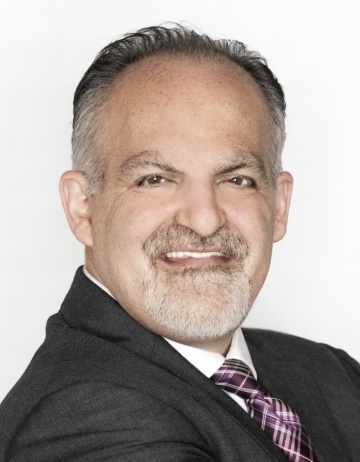Columbia College | Columbia University in the City of New York
Andrew Liebowitz ’06 Looks Back on COOP and Carman

What were you like when you arrived at Columbia?
During my Columbia Outdoor Orientation Program experience, I quickly built relationships that lasted throughout my years at the College. COOP offered an opportunity to spend time with older students and other first-years on trails and campsites and build rapport around campfires. I accidentally cut my thumb with a serrated knife while trimming moleskin for a blister. My group leader (and future fraternity brother), Matt Blasco ’04, remarked that while the injury was unfortunate, I would have a cool scar and story to tell about it for the rest of my life (fact!). So early in my Columbia experience I learned about the power of a positive attitude to help change one’s perspective on painful events.
I was impressed by how many strong, independently minded people were in my class. I gravitated toward others who had a bookish, philosophical streak. I joined the Philolexian Society soon after arriving and participation in zany literary debates became my go-to activity in Lerner Hall on Thursday nights followed by sangria and pizza at V&T.
I was outgoing and anxious. I didn’t know what I wanted to study but was already imagining taking courses in history and literature. I wanted to understand all about the other members of my class. I danced in, and explored, the American Museum of Natural History during the Orientation week reception. I imagined joining crew for a hot second, and then learned how early I would have to wake up for training.
What do you remember about your first-year living situation?
I lived in a Carman two-bedroom suite and got along well with my roommate, Andrew Milne ’06, and our neighbors Matt Disney SEAS’07 (who remains a close friend) and Gustavo Garcia SEAS’06. The legendary Michael Novielli ’03, TC’09 – who never needed the hours of sleep that lesser mortals required — was my R.A. and made Floor 12 a welcoming place. He allowed just enough chaos to keep life interesting, but never so much that anyone was unsafe. Carman hallways were always vibrating with social activity, planned and active adventures, and study groups. It was a great place to build a social network and learn about your class. I also befriended “Magic” Mike, a Carman security guard who moonlighted as an R&B cover artist. I bought one of his CDs.
What Core class or experience do you most remember, and why?
Dard Neuman GSAS’04, now an associate professor of music at UC Santa Cruz, was an outstanding Contemporary Civilization instructor and mentor. I participated in lively classroom debates on Plato’s concept of the good life, justice in the Old Testament, the ethics of Machiavelli’s prince, and other works. I remember feeling humbled after getting term papers back from Dard with many critical remarks. I was never discouraged, though. Dard coached me to feel confident in my ability to improve as a writer and interpreter of philosophical ideas, even when I felt far out of my depth. I’ve kept the lessons he shared close to me all these years later.
Dard also opened his home to our class: He invited us to his apartment in Morningside Heights toward the end of the term. He and his wife, Seema, fed us wonderful food and Dard, a gifted sitarist, played us Indian ragas.
Did you have a favorite spot on campus, and what did you like about it?
I had more than one. I enjoyed the line of passage between the courtyard of Hamilton and John Jay: the staircase adjacent to the stained glass in Hamilton, the statue of Hamilton and encountering the main entrance of John Jay. Something about the flow of light and the energy associated with the students emptying out of Hamilton after class or exams into that space felt rejuvenating. I liked my mailbox on the third floor of Lerner, which was directly next to my friend — and future best man at my wedding — Eric LeSueur ’06. I liked riding the tiny elevators in Butler and communing with old manuscripts in remote corners of the stacks where the only thing I was aware of was the smell of old paper and soft yellow light. I also liked the incredible view of campus from SIPA’s roof, but others didn’t like me going up there.
What, if anything, about your College experience would you do over?
I would have minored in mechanical engineering, applied mathematics or statistics. During my undergraduate career I doubled down on developing skills that came easily to me — writing and research in the humanities — at the expense of time that could have been spent challenging myself more. I wouldn’t have been any once-in-a-generation talent, but I would have saved myself a lot of work that came later in graduate school and in my career to develop deeper and more refined analytical skills. I was fortunate to have taken Professor David Helfand’s introductory astronomy course, which taught me the power of back-of-the-envelope calculations. I would have used that course as a foundation for more advanced coursework in an analytical discipline. I don’t regret having majored in history, though. Not for a second.
I would have also cooked more. Easy access to an endless supply of cheap and world-class restaurants in New York City saps the desire to cook and one’s budget. Not many students I knew cooked, but those who did saved a lot of money and developed a valuable life skill that would have been useful when I struck out on my own.

